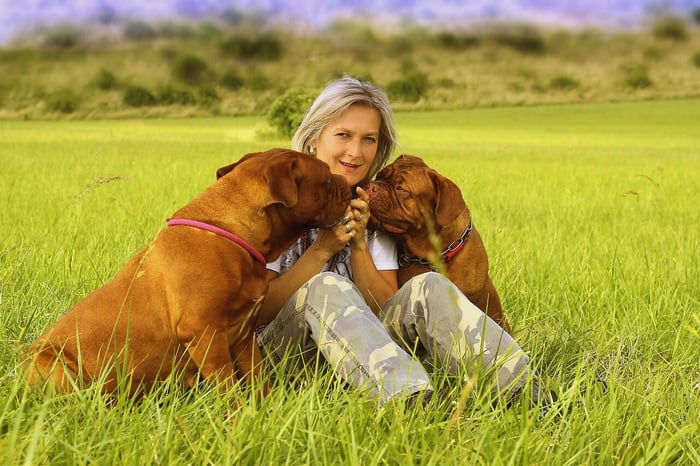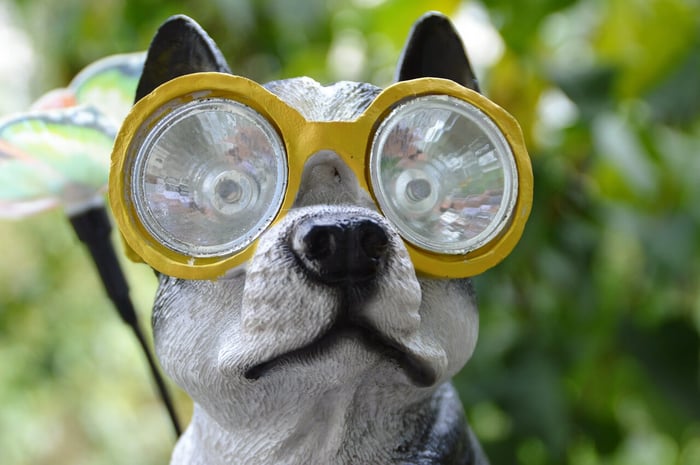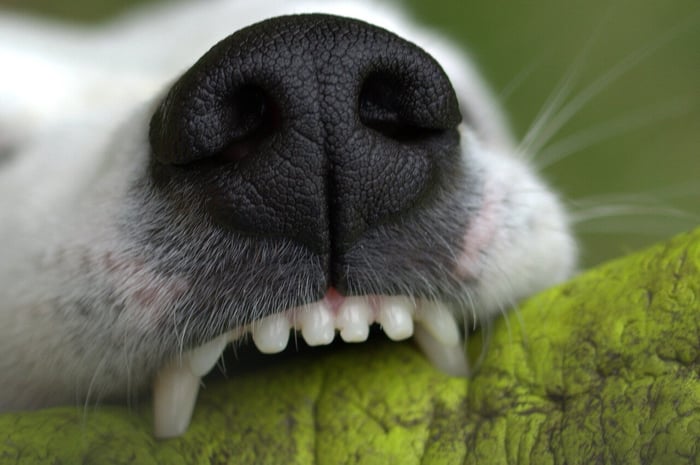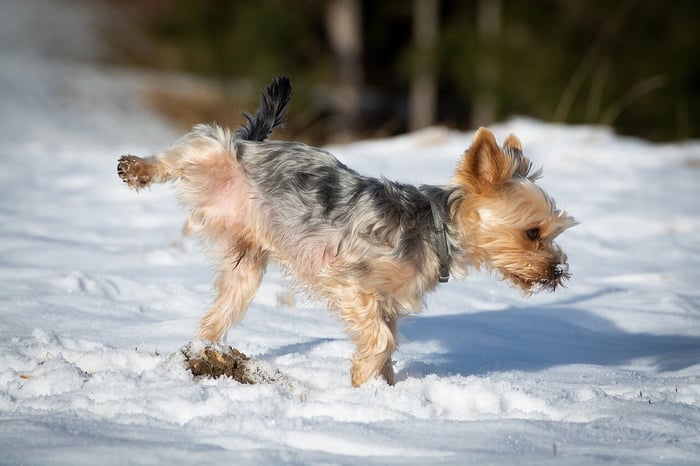If you own a large dog, you already know that they bring big affection, big licks, and, regrettably, some enormous health challenges. When it comes to our large fur babies, such as Labrador Retrievers, Golden Retrievers, and Siberian Huskies, there is a bit more to consider in terms of health than with smaller breeds.
Did you know that large dogs have dietary needs and exercise routines and are prone, to certain health issues? Taking care of your friends is a demanding responsibility! But don't worry, you've got it covered. I'm here to lend a hand.
In this guide, we will cover all the essential information you need to ensure the well-being of your large canine companion. From dietary choices to routine veterinary check ups grooming tips and even selecting the ideal bed for your furry friend.

The Lowdown on Nutrition
Ah, food—the way to every dog's heart! But when it comes to feeding your gentle giant, not just any kibble will do. Large dog breeds have unique nutritional requirements that differ significantly from smaller dogs, and we need to keep that in mind when meal-prepping for our fluffballs.
Your large dog needs a balanced diet that includes protein, fats, and carbohydrates. Think of it as their own "food pyramid" (although let's avoid the grains of the human pyramid, shall we?). Protein helps in muscle development and is an essential part of their diet. Fats give them the energy they need to keep up with their boundless enthusiasm. Finally, fruits and veggies provide essential vitamins and minerals—yes, dogs need their greens too!
Quality Over Quantity
Raise your paw if you've ever been tempted to buy that huge bag of generic dog food just because it's cheap! I get it, large dogs eat a lot, and the cost can quickly add up. But remember quality over quantity always. The right food might cost a bit more, but it'll save you a fortune in vet bills down the line. Look for brands that list real meat as the first ingredient and avoid fillers like corn, soy, and artificial additives.
Supplements
Dietary supplements can be incredibly beneficial, especially as your dog ages. Glucosamine is excellent for joint health—a significant concern for big dogs. Fish oils are great for skin and coat. Before you add any supplement to your dog's diet, though, make sure to consult your vet.
Exercise and Physical Activity
If you've ever found yourself chasing after a big dog that's bolted after a squirrel, you know these breeds come packed with energy! Large dogs may take up more of the couch, but they also need a lot of physical and mental stimulation to keep them healthy and, let's be honest, to keep you sane. So, how can you make sure your larger-than-life pal gets the exercise they need?
Daily Exercise
Let's be clear—letting your dog out in the backyard isn't enough. Sure, they may do a couple of laps, but they also need regular, structured exercise. A long walk at least once a day is essential. You can also include some playtime activities like fetch, agility training, or even hiking. The more you mix it up, the better!
Teaching Your Dog to Swim
If you're lucky enough to have access to a body of water, swimming can be an amazing exercise for large dogs. It's easy on their joints and a fantastic way to cool down in the hot weather. Not sure where to start? Check out this handy guide on How to Teach Your Dog to Swim. Trust me, both you and your fur baby will love it!
Mental Stimulation
Beyond the physical, it's essential to keep your dog mentally stimulated. Interactive toys, puzzle feeders, or a good old-fashioned game of hide-and-seek can be both fun and mentally rewarding for your pooch. A tired dog is less likely to be a destructive dog, and this is especially true for high-energy large breeds.

Weight Management
Hello there, we're back, and it's time to discuss a topic that is frequently overlooked but really important—weight control. You may believe that a few more pounds on your large dog aren't a huge deal, but the truth is that those pounds can build up to major health issues. Let's look at why keeping your big dog trim is important for lifespan and quality of life.
Regular Check-ups
First and foremost, regular vet check-ups are your best bet for precisely managing your dog's weight. Those veterinarian scales are calibrated to provide precise measurements, allowing you to monitor even little changes in your dog's weight. It's more than just a "weigh and pay" visit; it's a foundation of good health.
Obesity
Larger dog breeds are more prone to health conditions like hip dysplasia and it's important to note that carrying extra weight can exacerbate these problems. Believe me when I tell you that those additional pounds are not an inconvenience but they also pose a significant risk, to your dog's health.
Tips & Tricks for Losing Weight
If your giant dog appears to be "larger" than it should be, it may be time to make some lifestyle modifications. The first step is to review their food and exercise program. Consider portion control, minimizing snacks, and increasing physical activity in their regular routine. It may be difficult at first, but you and your dog will reap the rewards in the long term.

Grooming and hygiene
Brushing
Regular brushing is important not just for keeping your dog's coat looking great, but also for their skin health. A weekly or biweekly brushing practice, depending on your breed, might make a world of difference. It distributes natural oils, eliminates loose hair, and allows you to check for ticks or skin problems. Do you require a how-to manual? Check out our suggestions for brushing your dog's teeth (Oops! Not the teeth, but that's also crucial! We'll get there).
When it comes to taking care of our teeth we often forget about hygiene. However, it's important to note that neglecting oral health can have implications for our well-being, including the potential risk of developing heart disease. Although brushing your dog's teeth might seem challenging it's actually easier than you may imagine. To help you get started, here is a manual on how to properly brush your dog's teeth.
The Ideal Mattress
Although you may not consider a dog bed to be a part of grooming and hygiene, a decent bed promotes skin and coat health by providing a clean, comfortable sleeping environment.
A Trip to the Doc
If you've made it this far, give yourself a pat on the back—or better yet, give your big furball a belly rub! You're clearly committed to your dog's health, and that's commendable. But let's face it, even with the best diet, ample exercise, and grooming, you can't replace regular vet visits and preventative care. Here's what you need to know.
Yearly Check-ups
Just like you wouldn't skip your annual physical, your dog's yearly vet appointment is a must. A comprehensive examination allows your vet to catch any potential issues before they escalate, from dental problems to early signs of disease. Vaccinations, heartworm tests, and even an occasional blood test can go a long way in ensuring your big buddy lives a long, healthy life.
Parasite Prevention
Fleas, ticks, heartworms—oh my! Large dogs are just as susceptible to parasites as smaller breeds. Consult your vet about the best preventative medications for your specific breed and lifestyle. Whether it's a monthly pill, a chewable, or a topical treatment, this is one area where you don't want to skimp.
Specialized Screenings
As dogs age, the risk for certain conditions increases, especially for large breeds. Some may require specialized screenings like hip evaluations or eye tests. If you own a breed prone to specific health conditions, make sure to talk to your vet about when to start these screenings.
Conclusion
Wow, we've covered a lot of ground—literally and figuratively! From ensuring your pup gets enough exercise to maintaining a healthy weight, from grooming hacks to essential vet visits, we've touched on the A to Z of large dog care. But remember, every dog is as unique as its paw print, and what works for one may not work for another.
Reference: https://www.petmd.com/dog/general-health/how-keep-large-dogs-healthy-every-life-stage











